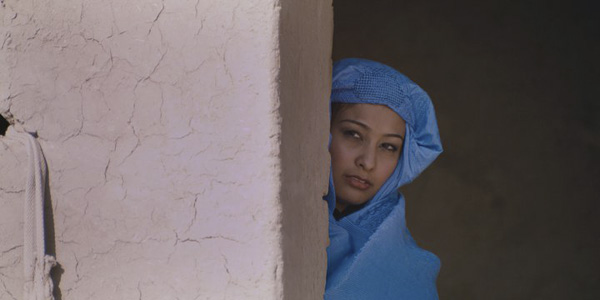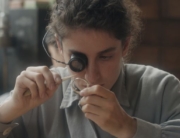Afghanistan’s entry for the foreign language Oscar, The Black Tulip is a brave, well-meaning effort by writer/director/producer/star Sonia Nassery Cole, filmed with a mostly local crew in a high-risk location.
After finally leaving a refugee camp, the middle-class Mansouri family returns to Kabul in 2010 to resume their lives that have been disrupted by war since the Soviet invasion in the 1980s, continuing through the Taliban takeover. Farishta (Cole) is determined to follow the freedom-loving spirit of her late father by converting the ruins of his old bookstore, The Poet’s Corner, into a restaurant with an open microphone. Her husband, Hadar (Haji Gul Aser), obliges her dream, but has good reason to be worried.
Problems start when a smarmy local official comes around asking for bribes. (The filmmaker had to deal with even more heavy-handed corruption as she daringly filmed around a city where the threats were as constant as the demands for payments.) Hoping for protection, Farishta welcomes allied forces to her restaurant to sample her proudly traditional cuisine (one colonel is played by Jack Scalia), but a favorable review in a local paper brings too much unfavorable attention from the Taliban to her business and her family.
Besides the scenery, which contrasts the chaotic, more liberal city with the poorer, mud-wattled outskirts of madrassas and Taliban sympathizers, the best scenes in this too-simplistic film are National Geographic-glimpses of cultural traditions—poetry and especially music—restored (at least for the time being) after being banned by the Taliban for immorality. Farishta optimistically builds a stage into her restaurant, and inaugurates performances with musicians singing a lovely song about their homeland. (The Afghan tunes are particularly beautiful in comparison to two schmaltzy Natalie Cole songs.)
Her younger sister, Belkis (Somaia Razaye), puts off her medical studies to help in the kitchen. She’s in love with the handsome, dashing Akram (Walid Amini), a rider in the national sport of buzkashi, where fiercely competitive horsemen press into an ever tighter circle to grab the headless carcass of a goat. The couple’s wedding (for which Akram had to carefully negotiate with his conservative father) is a sensually joyous celebration of music and dance, but, tragically, it turns out to be too daring. (One wonders if the women’s slipping scarves was a risk to the safety of the cast, judging from the repercussions seen in the pop music-flavored documentary Afghan Star).
The recent shocking shooting of Malala Yousufza, a school girl education advocate in Pakistan, shows that the Taliban still has the same agenda for the region, but the story by Cole, an activist in the U.S. for Afghan refugees, feels too much like it comes from an émigré nostalgic for the formerly cosmopolitan Afghanistan, like Hollywood’s The Kite Runner (2007), rather than a realistic recognition of how the country can move beyond the past, though Cole at least dares to film in the country.







Leave A Comment